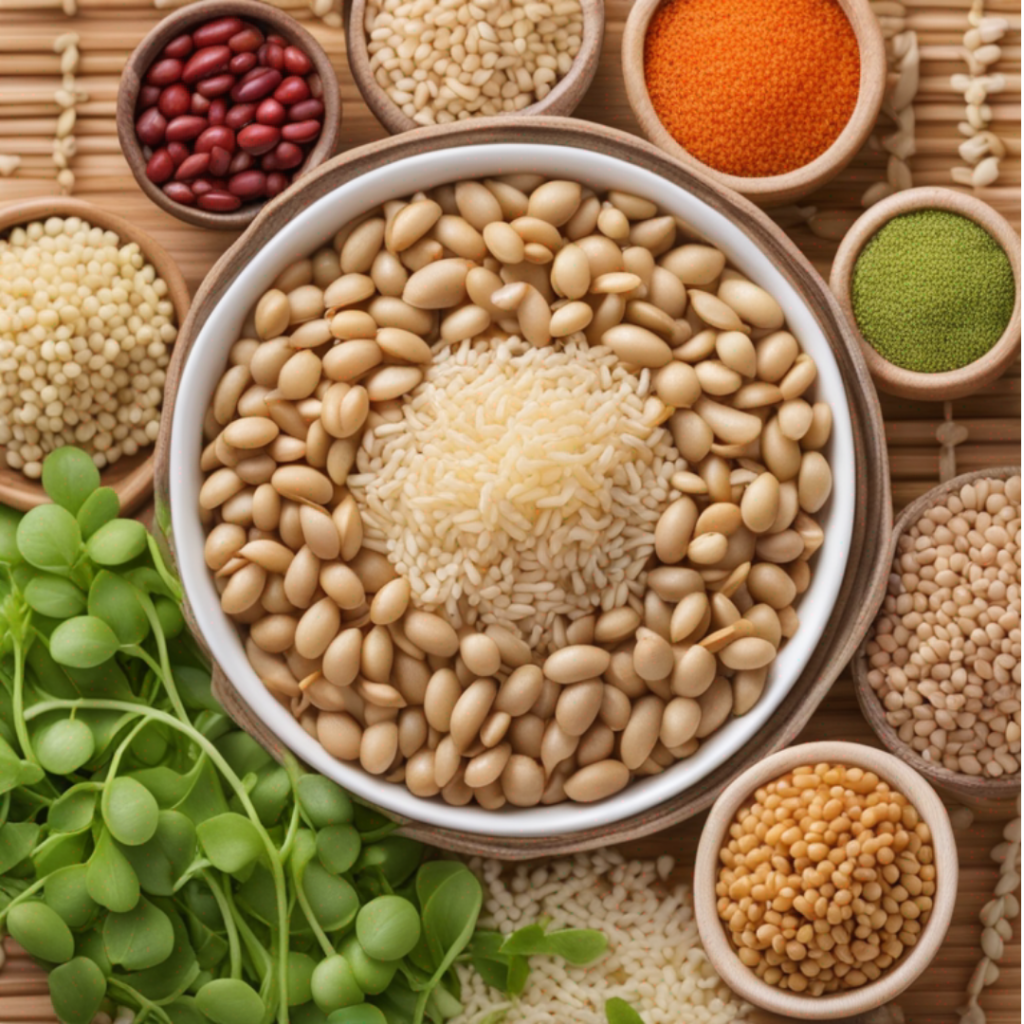Sprouts are young plants that are just beginning to grow from a seed. They are a nutritious addition to any diet and are incredibly versatile in the kitchen. Sprouts come in many varieties, including alfalfa, bean, broccoli, and radish sprouts, just to name a few. They are often used in salads, sandwiches, stir-fries, and smoothies, and they are also easy to grow at home. In this blog, we will explore the benefits of sprouts and some additional topics related to these nutritious little plants.

Nutritional Benefits of Sprouts
One of the main benefits of sprouts is their high nutritional value. They are packed with vitamins, minerals, and antioxidants, and they are low in calories. Some of the key nutrients found in sprouts include:
- Vitamin C: Sprouts are a great source of vitamin C, which helps boost the immune system and promote healthy skin.
- Vitamin K: Sprouts are also high in vitamin K, which is important for bone health and blood clotting.
- Folate: Folate is essential for proper brain function and can help prevent birth defects in pregnant women.
- Iron: Sprouts are a good source of iron, which is important for healthy blood and energy levels.
- Fiber: Sprouts are high in fiber, which helps promote digestive health and can help lower cholesterol levels.
How to Grow Sprouts at Home
Growing sprouts at home is easy and requires very little space. To grow your own sprouts, you will need a sprouting jar or tray, sprouting seeds, and water. Here are the basic steps:
- Rinse the sprouting seeds in water and let them soak for several hours or overnight.
- Drain the water and place the seeds in a sprouting jar or tray.
- Rinse the seeds with water twice a day, making sure to drain any excess water.
- After several days, your sprouts will be ready to eat!
Different Types of Sprouts
As mentioned earlier, there are many different types of sprouts to choose from. Some of the most popular varieties include:
- Alfalfa sprouts: These are one of the most common types of sprouts and have a mild, nutty flavor.
- Bean sprouts: These are made from a variety of different beans and are commonly used in Asian cuisine.
- Broccoli sprouts: These are rich in antioxidants and have a slightly spicy flavor.
- Radish sprouts: These have a peppery taste and are often used in salads and sandwiches.
- These are the few! chickpeas, mung bean, horse gram, Pearl millet are the most common sprouts in asian countries such as india.
Health Benefits of Eating Sprouts
In addition to their nutritional value, sprouts have many health benefits. Some of these include:
- Anti-inflammatory properties: Sprouts contain compounds that can help reduce inflammation in the body, which can help prevent chronic diseases such as cancer, diabetes, and heart disease.
- Digestive health: The fiber in sprouts can help promote healthy digestion and prevent constipation.
- Weight management: Sprouts are low in calories and high in fiber, making them a great food for weight management.
- Skin health: The vitamin C in sprouts can help promote healthy skin by boosting collagen production and protecting against UV damage.
How to Use Sprouts in Your Diet
Sprouts are incredibly versatile and can be used in a variety of different ways. Here are some ideas:
- In simple way, you may eat sprout as raw as well as cooked.
- Otherwise add them to salads for an extra crunch and nutrition boost.
- Use them in sandwiches or wraps instead of lettuce.
- Stir-fry them with other vegetables for a quick and healthy meal.
- Add them to smoothies for an extra nutrient boost.
sprouts are a nutritious and versatile food that can be easily incorporated into any diet. Whether you buy them at the store or grow them at home, sprouts are a great way to add some extra nutrition to your meals. With their high vitamin and mineral content, anti-inflammatory properties, and digestive health benefits, they offer a lot of health benefits for a small package. Plus, with so many different varieties available, there’s always something new to try.
Safety Considerations When Consuming Sprouts
While sprouts offer many health benefits, it’s important to handle and consume them safely to prevent foodborne illness. Sprouts can be a breeding ground for bacteria such as E. coli and Salmonella, which can cause serious illness. To reduce your risk, follow these safety tips:
- Buy sprouts that have been refrigerated and have a use-by date.
- Rinse sprouts thoroughly before eating.
- Store sprouts in the refrigerator at 40°F or below.
- Discard any sprouts that look or smell off.
- Avoid eating raw sprouts if you have a weakened immune system, are pregnant, or are elderly.
Sprouts in Traditional Medicine
Sprouts have been used in traditional medicine for thousands of years. Ayurveda, the traditional medicine system of India, has long recognized the health benefits of sprouts. According to Ayurvedic principles, sprouts are easy to digest, improve digestion, and help detoxify the body. They are also believed to have a cooling effect on the body, making them a good food for hot climates.
